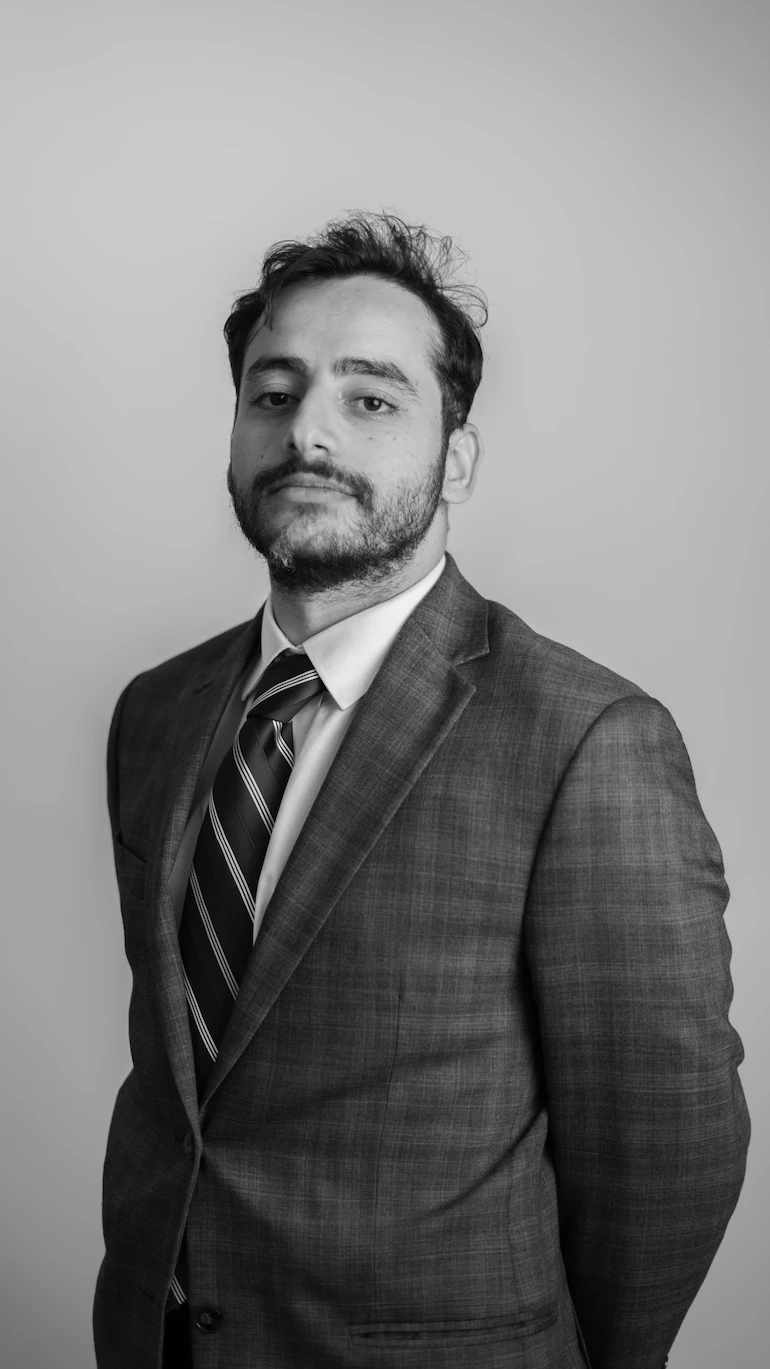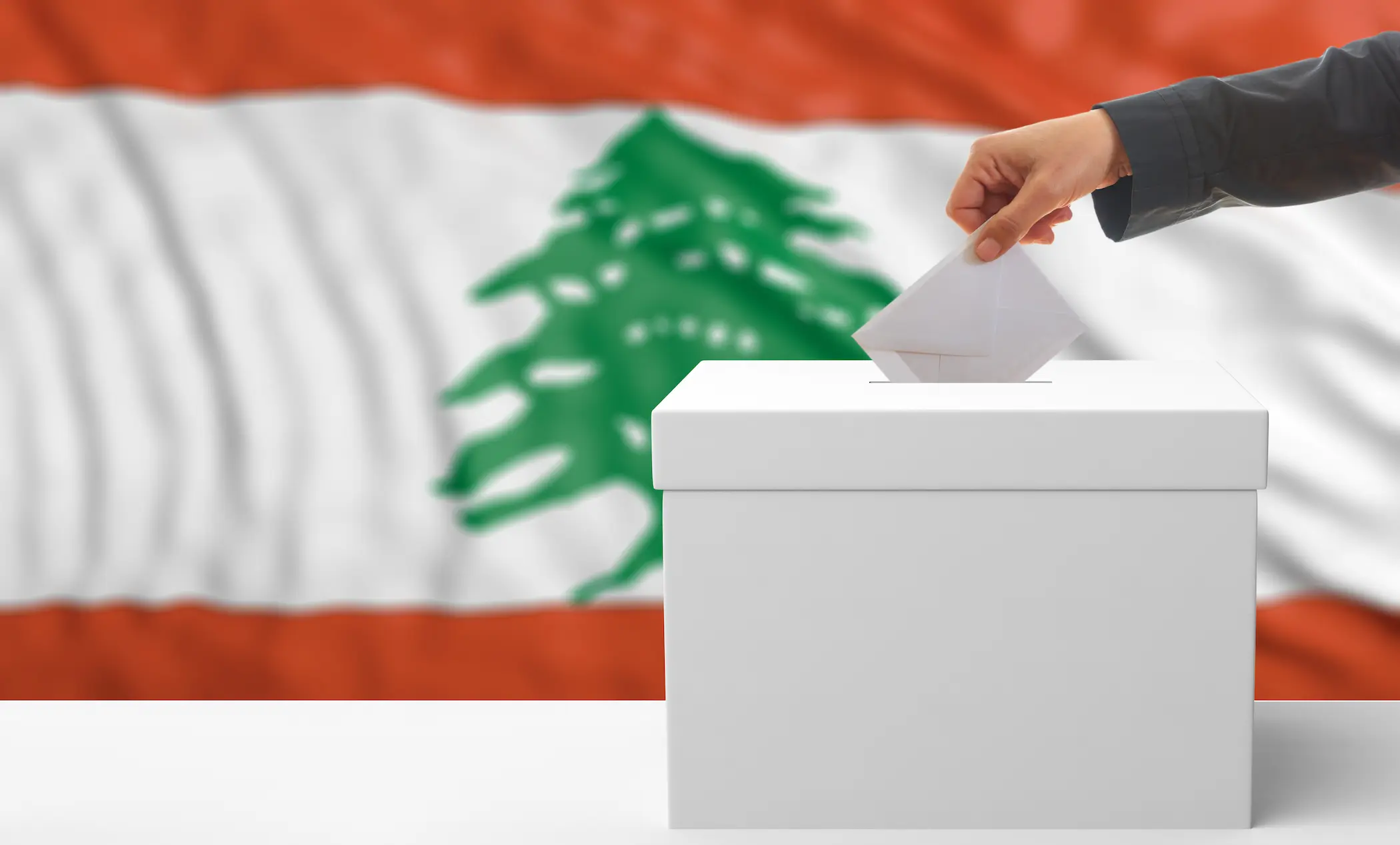As the U.S. election looms, former President Donald Trump and Vice President Kamala Harris are both working to mobilise their supporters, ensuring strong voter engagement by Election Day on November 5. While both campaigns employ similar tactics, the Harris campaign has followed recent Democratic strategy by leveraging celebrity endorsements to inspire younger voters, who historically have lower turnout rates but tend to lean Democratic. This challenge with young voters, contrasts with the Trump campaign’s stronger base among White Evangelicals, who, despite not making up a majority of the population, reliably vote in large numbers across the United States (U.S.). The Harris campaign’s reliance on Hollywood celebrities highlights the industry’s alignment with liberal causes and the need to mobilise young voters, compared to the consistent support Trump receives from conservative religious groups, who form a reliable voter base. The divide between Harris’s Hollywood and Trump’s Evangelicals is another representation of another dividing line in the U.S. and raises questions.
Why is Hollywood Liberal?
Although it’s challenging to determine exactly how many celebrities view themselves as liberal, several factors clarify why Hollywood leans more to the left than other industries. One factor, not unique to Hollywood, is location: a significant portion of media professionals are concentrated in Los Angeles and New York City, large metropolitan areas where liberal views are prevalent. The cosmopolitan nature of these cities exposes residents to various cultures and religions, fostering a broader understanding and acceptance of diverse perspectives. Similar trends are found across the United States, where large urban centres tend to favour liberal ideas more than rural areas.
Another major factor is union membership within Hollywood. Much like unions nationwide, where nearly 60% of members identify with or lean toward the Democratic Party, Hollywood unions have long been a vital voting bloc for the Democrats. This is consistent even as some union leaders, such as Teamsters President Sean O’Brien, have recently engaged with the Republican Party, marking a notable but rare exception.
These factors suggest that Hollywood’s left-leaning tendency isn’t exceptionally distinct from other industries rooted in large cities and unionised workforces. However, unique aspects of acting may further influence Hollywood’s political inclinations. Dr. Steven Ross, a historian of American film and culture, suggests that actors, who must frequently portray characters they may dislike or differ from, often develop heightened empathy—a quality associated with liberal identity.
Hollywood’s liberal stance has sparked vocal criticism from conservatives, who accuse it of being “woke” and of silencing dissenting views. Yet, Hollywood’s liberal reputation is not new; during the McCarthy era in the 1950s, hundreds of industry professionals were blacklisted over alleged communist ties, although there were definitely some writers or actors that had direct ties, the shadow that the Cold War and McCarthyism cast essentially led to a purge targeting those in Hollywood with liberal affiliations that could be perceived as communist.
Ironically, despite Hollywood’s historical liberalism, it played a crucial role in elevating Ronald Reagan and Donald Trump—two of the most consequential Republican presidents in recent history—into the national spotlight and to wider audiences.
Do Celebrity Endorsements Even Matter?
To give a short answer, maybe. It is unlikely that a singular celebrity endorsement would decide an election, but they can definitely move the needle, although relative to total voters it may be a small margin, however, increasingly smaller margins have decided the 2016 and 2020 elections and will likely decide this election if the polls turn out to be accurate. More importantly it is unlikely that an artist’s endorsement would change the voting preferences of an individual, where their impact is more profoundly felt among undecided voters and more importantly in those who might have no intention to vote. This is the key reason that previous democratic campaigns have aimed to leverage celebrities, with the Harris campaign being no different, with a recent rally in Texas featuring a speech from Beyonce in front of 30,000 people, and the endorsement of Harris by Taylor Swift following the Harris-Trump debate leading to 400,000 users visiting vote.gov where they can register to vote.
As mentioned above, the endorsement of a celebrity and their public support can significantly impact specific voter demographics, particularly younger audiences who feel closely connected to public figures they admire. Younger voters, who typically consume high levels of social media content, are often more responsive to celebrities’ political stances. When stars like Taylor Swift or Ariana Grande endorse political candidates, their messages create surges in online engagement and encourage young people to pay attention to issues they might otherwise overlook, an example would be singer Charli XCX’s “kamala IS brat” tweet that was seen by over 50 million people.
By publicly supporting particular candidates or causes, they can bring issues to the forefront of public discourse and engage audiences who may not follow traditional news outlets. On platforms like Instagram, X (formerly Twitter), and TikTok, these endorsements reach millions, generating extensive interactions that amplify a candidate’s message far beyond typical campaign channels. While endorsements increase visibility and encourage awareness, they rarely change entrenched political beliefs or sway voters already aligned with opposing ideologies. For older, more traditional voters, celebrity endorsements may even be counterproductive, reinforcing the idea that celebrities are out of touch or attempting to impose their views from a place of privilege. These endorsements can backfire if voters feel disconnected from the celebrity’s lifestyle or political motivations, particularly when endorsing issues seen as out of touch with everyday concerns.
Does Religion Matter in the U.S. Elections?
Religion’s role in the U.S. elections is a complex phenomenon that affects voter behaviour, political mobilisation, and the shaping of ideologies. As a powerful social identity, religion influences political preferences and electoral outcomes, especially among groups like White Evangelicals and Catholics, who have historically aligned with conservative political movements. Religious beliefs significantly inform voter attitudes, party affiliations, and civic engagement, making religion a crucial factor in understanding U.S. electoral dynamics.
A primary way religion impacts elections is through its influence on political ideologies. Research indicates that religious affiliations often align with specific political beliefs, especially among conservative Christians, who prioritise issues like abortion, marriage, and religious freedom. This ideological alignment has mobilised religious groups as powerful voting blocs, particularly within the Republican Party. The Christian Right, for example, became a significant political force in the 1980s by rallying voters around socially conservative issues. This alignment of religious beliefs with political ideologies shapes how voters interpret candidates and policies, often leading to predictable voting patterns along religious lines.
Religion also fosters political engagement through community-building. Religious congregations serve as spaces for political discussion and mobilisation, encouraging members to participate in civic activities like voting. The social networks within religious communities can increase political participation by providing resources and motivation for engagement. Studies show that individuals involved in religious organisations are more likely to vote and advocate politically than nonreligious counterparts, highlighting religion’s role as a facilitator of civic engagement, particularly among conservative religious groups.
The concept of civil religion also influences U.S. politics, where religious symbols and rhetoric are used in public discourse to promote national identity and unity. During presidential campaigns, for example, candidates often invoke religious themes to connect with voters and build legitimacy. This strategic use of civil religion demonstrates how religion can be used in political contexts to mobilise support and shape public opinion.
Moreover, the polarisation of American society has heightened religion’s visibility in electoral politics. As political sectarianism grows, religious identities have increasingly shaped partisan allegiances, with religious affiliation often predicting voting behaviour. White Evangelicals, for instance, consistently support Republican candidates, while more progressive religious groups lean toward the Democratic Party. This intertwining of religious and political identities complicates the American electoral landscape, where religious affiliation increasingly influences political identity.
Religious disaffiliation further complicates the impact of religion on elections. As more Americans identify as religiously unaffiliated, both major political parties face the challenge of engaging a diverse electorate that includes a significant secular population. Political candidates must balance appealing to their religious bases with reaching a broader, more pluralistic audience, which is essential for success in today’s society.
The influence of religion on voting behaviour also varies across different religious groups. While some, like Evangelicals, exhibit strong partisan loyalty, others, such as mainline Protestants and Catholics, display more diverse voting patterns. This diversity within religious communities highlights the need for nuanced analysis of how specific beliefs and practices influence voting choices. Such insights are essential for political strategists aiming to connect with varied religious constituencies effectively.
Religious groups also actively advocate for specific policies and candidates, often engaging in lobbying and grassroots mobilisation to advance their political agendas on issues like abortion, immigration, and health care. This advocacy underscores the broader trend of politicised religion, where faith-based organisations participate in the political process to shape legislation and public policy, leveraging collective influence to impact the political landscape.
The role of religion in elections extends beyond individual behaviour to influence broader societal dynamics. The intertwining of religious and political identities can contribute to social divisions, particularly as differing religious beliefs inform political attitudes. This relationship raises important questions about religion’s role in fostering social cohesion or exacerbating polarisation within U.S. society. As religious identities become more politicised, the potential for conflict increases, underscoring the need to understand these dynamics in electoral contexts.
Why Do Evangelicals Support Donald Trump?
The support of Evangelicals for Trump can be attributed to an interplay of religious identity, political ideology, and cultural factors. Their support is rooted in the historical alignment of these groups with conservative values, on social issues such as abortion, marriage, and religious freedom. Research indicates that a significant portion of White Evangelicals view Trump as a champion of their values, despite his personal conduct and perceived irreligiosity. This phenomenon can be understood through the lens of Christian nationalism, which has emerged as a powerful motivator for these groups, intertwining their religious beliefs with politics.
The 2016 and 2020 presidential elections saw a notable surge in support for Trump among Evangelicals, who were drawn to his promises to uphold traditional values and protect religious freedoms. This support was not merely a reaction to Trump’s policies but also a reflection of a broader cultural alignment. Many Evangelicals perceive themselves as part of a beleaguered majority facing threats from secularism and progressive ideologies, which they believe undermine their religious and cultural identity. This sense of alienation from liberalism has been worsened by the political climate, prompting these groups to rally behind a candidate who they believe represents their interests and values.
Moreover, the political landscape has shifted significantly, with many conservative religious voters feeling increasingly marginalised by the Democratic Party, which they associate with policies that contradict their beliefs. The Democratic Party’s stance on issues such as abortion and LGBTQ rights has alienated many conservative Catholics and Protestants, leading them to view Trump as a bulwark against what they perceive as an encroaching liberal agenda. This alignment is further reinforced by the actions of the U.S. Catholic bishops, who, despite some internal divisions, have often supported pro-life policies that resonate with Trump’s platform.
The role of tribalism in shaping political preferences cannot be overlooked. Studies indicate that Evangelicals are significantly more likely to support Trump compared to their Catholic counterparts, suggesting a deeper ideological commitment among Evangelicals to the Republican Party. This tribalism is characterised by a strong in-group identity that fosters loyalty to political leaders who espouse similar values, creating a feedback loop that reinforces support for Trump among these religious communities. The perception of Trump as a defender of Christian values against perceived threats from outside groups, including immigrants and Muslims, has also played a crucial role in galvanising support.
Furthermore, the intersection of religious beliefs and political ideology has led to a unique form of political engagement among these groups. Many White Protestants and Catholics have adopted a worldview that prioritises their religious identity over traditional partisan lines, leading to a phenomenon where religious affiliation becomes a primary determinant of political behaviour. This shift has been particularly pronounced among Evangelicals, who have increasingly aligned their political preferences with their religious convictions, viewing Trump as a vehicle for advancing their agenda.
The impact of Trump’s judicial appointments, particularly regarding issues such as abortion and religious liberty, has also solidified his support among conservative religious voters. Many in these communities believe that Trump’s presidency has resulted in tangible benefits for their causes, further entrenching their loyalty to him.
The phenomenon of Christian nationalism, which intertwines religious identity with national identity, has also played a significant role in shaping the political landscape for White Protestants and Catholics. This ideology promotes the idea that the U.S. is fundamentally a Christian nation, and has been a driving force behind the support for Trump among these groups. Many adherents of Christian nationalism view Trump as a protector of their religious heritage, which they believe is under threat from secularism and multiculturalism.
In conclusion, religion and cultural affiliations play distinct yet complementary roles in shaping U.S. electoral dynamics, as seen in the contrasting bases of support for Harris and Trump. Harris’s campaign draws heavily on Hollywood endorsements, appealing to a younger, more progressive demographic. These celebrity endorsements can amplify visibility and engage younger voters, who, while less likely to vote, tend to lean Democratic. Hollywood’s liberal-leaning support highlights the alignment of the entertainment industry with values around social justice, diversity, and progressive causes, which resonate with Harris’s base.
Conversely, Trump’s support is deeply rooted in conservative religious communities, particularly among White Evangelicals. This group’s support is not simply symbolic but reflects a longstanding ideological alignment with the Republican platform on issues like abortion, religious freedom, and traditional values. Unlike the relatively volatile support of celebrity endorsements, Evangelicals’ loyalty to Trump is grounded in shared conservative values and a community-oriented mobilisation structure that fosters high voter turnout. This difference in support—Hollywood’s celebrity backing for Harris and the Evangelical loyalty for Trump—illustrates the diverse pathways through which social identities shape political mobilisation and underscores the complexity of religion and cultural affiliations in U.S. electoral politics.
References
Allison Kaplan Sommer, “Armageddon? Bring It on: The Evangelical Force Behind Trump’s Jerusalem Speech,” Haaretz.Com, December 11, 2017, https://www.haaretz.com/israel-news/2017-12-11/ty-article/.premium/armageddon-bring-it-on-the-evangelical-force-behind-trumps-jerusalem-speech/0000017f-f7ae-d318-afff-f7efc53c0000
Becket, Stefan, and Gillian Morley. “Taylor Swift Drove 405,999 Visitors to Vote.Gov in 24 Hours after Kamala Harris Endorsement.” CBS News, September 12, 2024. https://www.cbsnews.com/news/taylor-swift-kamala-harris-endorsement-vote-gov/
Cerda, Andy. “Key Facts about Union Members and the 2024 Election.” Pew Research Center, October 17, 2024. https://www.pewresearch.org/short-reads/2024/10/17/key-facts-about-union-members-and-the-2024-election/
Eugene Scott, “Comparing Trump to Jesus, and Why Some Evangelicals Believe Trump Is God’s Chosen One,” The Washington Post, December 18, 2019, https://www.washingtonpost.com/politics/2019/11/25/why-evangelicals-like-rick-perry-believe-that-trump-is-gods-chosen-one/
Frances Robles and Jim Rutenberg, “The Evangelical, the ‘Pool Boy,’ the Comedian and Michael Cohen,” The New York Times, June 18, 2019, https://www.nytimes.com/2019/06/18/us/trump-falwell-endorsement-michael-cohen.html
Gregory Smith, “5 Facts About Religion and Americans’ Views of Donald Trump,” Pew Research Center, March 15, 2024, https://www.pewresearch.org/short-reads/2024/03/15/5-facts-about-religion-and-americans-views-of-donald-trump/
Gregory Smith, “White Protestants and Catholics Support Trump, but Voters in Other U.S. Religious Groups Prefer Harris,” Pew Research Center, September 9, 2024, https://www.pewresearch.org/short-reads/2024/09/09/white-protestants-and-catholics-support-trump-but-voters-in-other-us-religious-groups-prefer-harris/
Gross, Neil. “Why Is Hollywood so Liberal?” The New York Times, January 27, 2018. https://www.nytimes.com/2018/01/27/opinion/sunday/hollywood-liberal.html
Guardian Staff Reporter, “Evangelicals See Trump as a Way to Get What They Want After Decades of Defeat,” The Guardian, February 1, 2020, https://www.theguardian.com/us-news/2020/feb/01/evangelicals-trump-policy-defeat-us-election-2020-christians
Heidi Schlumpf, “These Catholic-led Groups Are Supporting Donald Trump in the 2024 Election,” National Catholic Reporter, October 8, 2024, https://www.ncronline.org/news/these-catholic-led-groups-are-supporting-donald-trump-2024-election
Peter Smith, “Jesus Is Their Savior, Trump Is Their Candidate. Ex-president’s Backers Say He Shares Faith, Values,” AP News, May 19, 2024, https://apnews.com/article/trump-christian-evangelicals-conservatives-2024-election-43f25118c133170c77786daf316821c3
Sherman, Maria. “Beyoncé Endorses Kamala Harris in Joyful Speech at Houston Rally: ‘I’m Here as a Mother.’” AP News, October 26, 2024. https://apnews.com/article/beyonce-kamala-harris-6b3f928bb7fd5a705f32ac3d04b89ed8
Spillane, Ashley. “Celebrities Strengthening Our Culture of Democracy.” Ash Center, August 9, 2024. https://ash.harvard.edu/resources/celebrities-strengthening-our-culture-of-democracy/













Comments